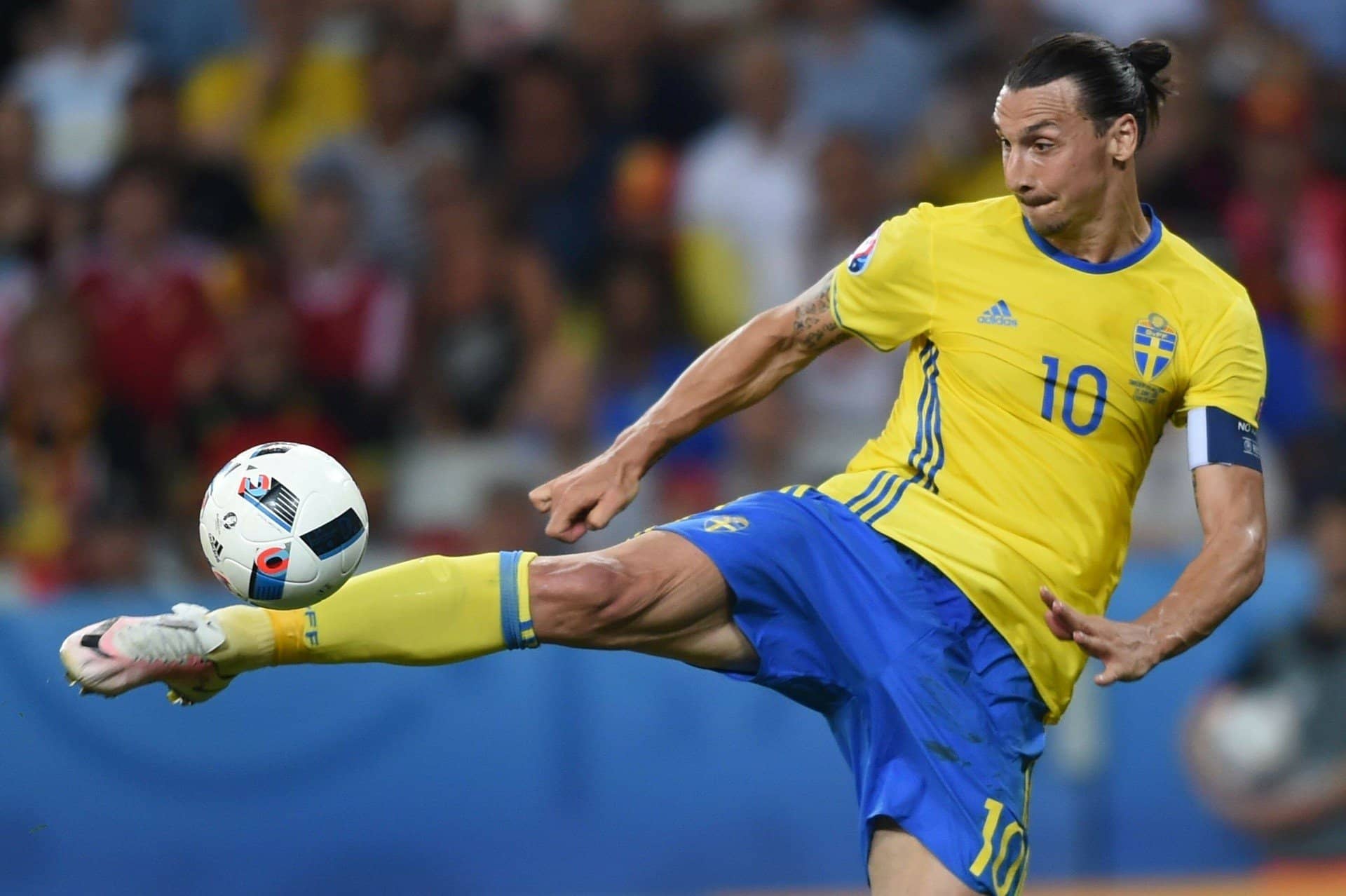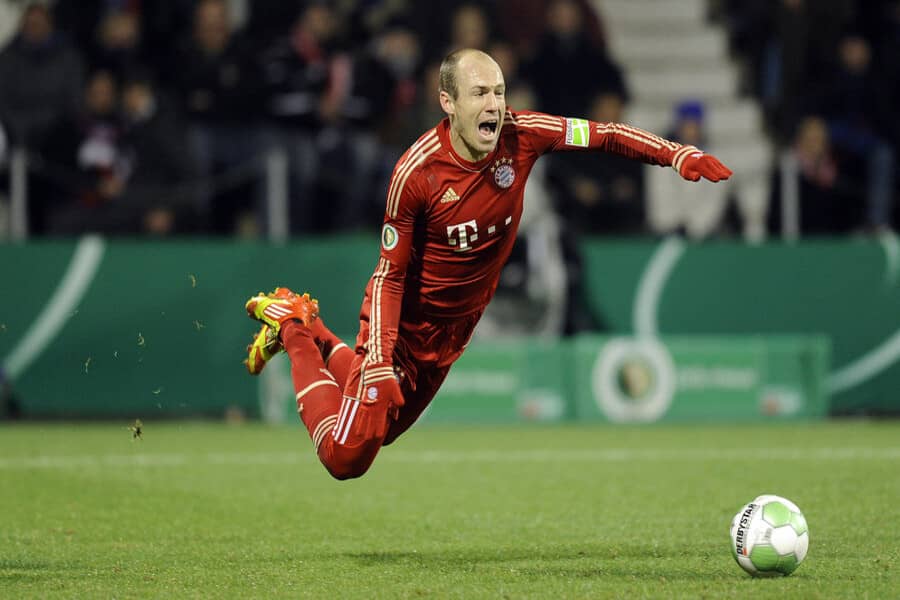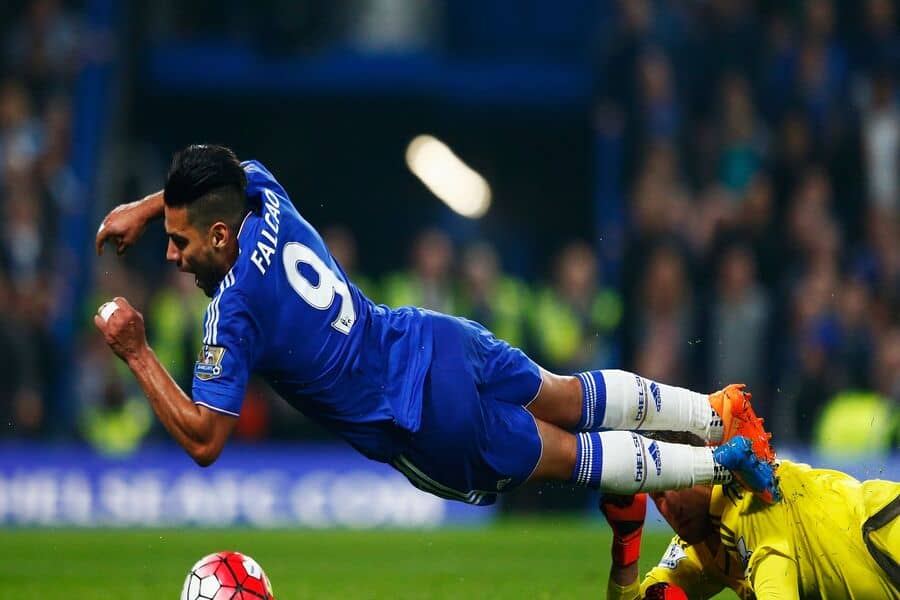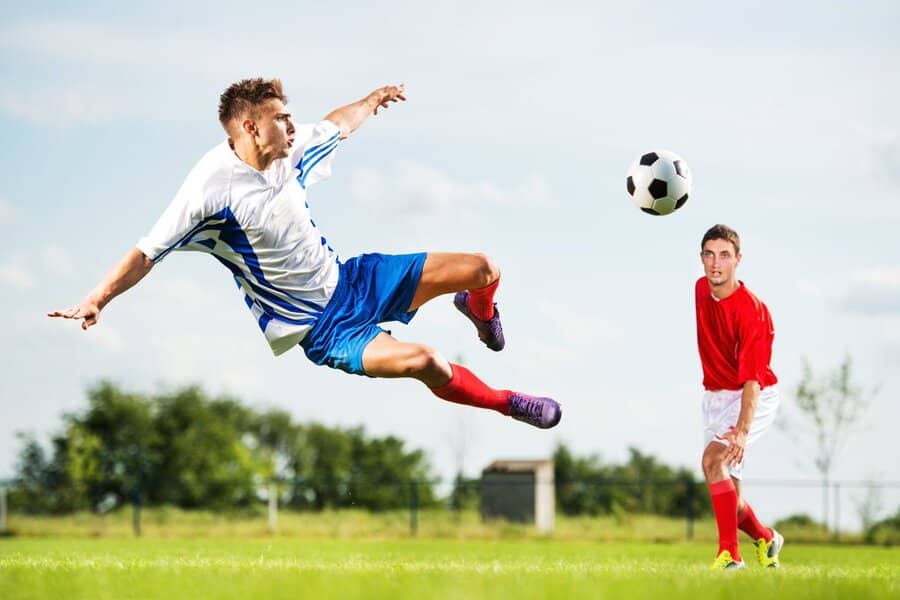
Ah, diving in football – an art form or a blight on the beautiful game?
You’ve probably found yourself marveling at the theatrics of certain footballers as they gracefully hurl themselves to the ground, seemingly in agony, only to recover moments later miraculously.
While you may roll your eyes at these antics, the fact remains that diving is an integral part of football culture and strategy, raising questions about sportsmanship, fairness, and the very nature of the game itself.
As you delve into the world of football and its unwritten rules, you might feel a sense of camaraderie with fellow enthusiasts who passionately debate the ethics and implications of diving.
In this article, we’ll examine why footballers choose to dive, famous instances of diving throughout football history, and the positive and negative consequences that arise from these controversial actions.
By the end, you’ll have a deeper understanding of the reasons behind diving and find yourself better equipped to join the ongoing debate about its place in the sport.
Related: How Far Can You Kick A Soccer Ball?
Diving in Football

You might wonder why diving’s become such a hot topic in football. Diving, or simulation, refers to a player exaggerating or faking a foul to deceive the referee and gain an unfair advantage. The constant change in the sport is at the heart of the argument.
As football has become more competitive and skillful, players have sought new ways to outsmart their opponents and secure victory, with diving emerging as one such tactic.
In recent years, it has gained prominence as a fiercely debated issue, with many arguing that it undermines the integrity of the beautiful game.
Diving in football isn’t a recent phenomenon, though. It’s been around almost as long as the sport itself. The 1960s and 1970s saw players such as Pelé and Diego Maradona theatrically diving to the ground to win free kicks or penalties.
However, it’s in the modern era that diving has genuinely come to the fore, with the advent of high-definition television broadcasts and the influence of social media.
These advancements have exposed the practice to broader scrutiny, leading to a more significant push for accountability and fairness within the sport.
As a result, the football community has become increasingly divided over the issue, with some advocating for harsher penalties and others arguing that diving is simply part of the game’s tactical landscape.
The Rules of Football: Addressing Diving
To make the right call on whether to dive or not as you dodge opponents on the field, you must be familiar with how the laws of football address and govern this contentious strategy.
Diving, or simulation, is when a player deliberately exaggerates contact or feigns injury to deceive the referee into awarding a free kick or penalty.
The Laws of the Game provide that any player caught diving must be shown a yellow card as a warning for their unsportsmanlike behaviour.
However, the interpretation and enforcement of this rule can vary greatly depending on the referee’s judgment and the specific circumstances of the incident.
As a footballer, you should be aware that the consequences of diving can be detrimental to your team and your reputation.
Ever-present is the risk of being caught and penalized if some players attempt to get away with it occasionally.
Moreover, the football community is increasingly critical of diving, with fans, pundits, and fellow players expressing disdain for this unsportsmanlike conduct.
By understanding the rules and their implementation, you can make informed decisions on the field and contribute to a fair and enjoyable game for all involved.
Remember, as a footballer, you’re representing yourself and your team and the sport as a whole, so play with integrity and respect for the beautiful game.
Why Footballers Choose to Dive

Despite the risks and negative reputation, players might still opt to dive into certain situations, as it can potentially lead to game-changing advantages for their team.
In high-pressure matches, where the stakes are high, a well-timed dive can result in a penalty or free kick, providing a golden opportunity for the team to score.
The team can use diving as a tactical maneuver to waste time or draw a foul from the opposition, allowing them to regroup or disrupt the opponent’s momentum.
As a fan, you might feel conflicted when witnessing such acts, but you can’t deny the impact they can have on a match’s outcome.
To better understand why footballers choose to dive, it’s essential to consider the game’s dynamics and the pressure they face both on and off the field.
Fans, coaches, and team owners constantly scrutinize players in the fast-paced, high-stakes environment of modern football.
When the difference between success and failure can be a single goal, the temptation to bend the rules for strategic advantage is understandably high.
As a fan, you may not condone diving, but it’s crucial to appreciate the demanding circumstances that can drive a player to make such a decision.
By understanding the sport’s complexities and the pressures the players face, you can foster a deeper connection with the game and its intricacies.
Related: Does Lewandowski Dive?
Famous Instances of Diving in Football History
Countless instances of diving throughout football history have altered the course of entire tournaments, surprising many.
These moments have left fans in disbelief and led to significant rule changes within the sport. It’s essential to recognize these instances to understand their impact on football.
Impact on football
- Diego Maradona’s ‘Hand of God (1986 World Cup): In a match against England, Argentine legend Diego Maradona leaped into the air to punch the ball into the net, deceiving the referee into thinking he had headed the ball. God dubbed the goal the “Hand of God” and changed the outcome of the 1986 World Cup.
- Rivaldo’s infamous dive (2002 World Cup): In a group stage match against Turkey, Brazilian forward Rivaldo went down clutching his face after a Turkish player kicked the ball toward him. Replays showed the ball had struck Rivaldo’s leg, but the referee issued a red card to the Turkish player, significantly affecting the game’s outcome.
- Arjen Robben’s dive against Mexico (2014 World Cup): In a knockout round match, Dutch winger Arjen Robben was awarded a controversial penalty in stoppage time after appearing to be fouled by a Mexican defender. Replays showed minimal contact, but the resulting penalty sent the Netherlands to the quarterfinals.
- Neymar’s theatrics (2018 World Cup): Brazilian star Neymar became infamous for his exaggerated reactions to tackles during the 2018 World Cup. His antics sparked significant criticism and even mockery, leading to discussions about how to deal with diving in the sport.
These famous instances of diving have undoubtedly impacted football. Some have even led to rule changes aimed at discouraging such behavior.
By recognizing these moments, we can better understand the need for a collective effort to eliminate diving from the beautiful game and foster a sense of fair play and belonging among players and fans.
Consequences of Diving in Football
It’s no secret that diving in football carries consequences, but what exactly are these repercussions, and how do they impact the players involved and the sport as a whole?
Immediate consequences for a player caught diving include receiving yellow or red cards, which can lead to their team playing with fewer players and ultimately affecting the match’s outcome.
In addition to in-game penalties, players may face post-match consequences such as fines, suspensions, and reviews by governing bodies like FIFA and UEFA.
These measures aim to hold players accountable for their actions and maintain the integrity of the sport, helping to ensure that you and your fellow fans can continue to enjoy the beautiful game without feeling cheated by dishonest tactics.
On a broader scale, the consequences of diving in football can be far-reaching and long-lasting, impacting both individual players and the sport.
For instance, players who become notorious for diving may suffer damage to their reputation, which can affect their career prospects and marketability both on and off the field.
This negative image can also influence young players who look up to these professionals, potentially leading to a generation of athletes who emulate these unsportsmanlike behaviors.
Furthermore, diving undermines the overall integrity of the game, chipping away at the sense of fair play and camaraderie that makes football such a beloved pastime for millions worldwide.
By understanding and acknowledging the consequences of diving, we can all play a part in preserving the essence of the sport that unites us in our shared passion and desire for belonging.
The Debate: Should Diving Be Allowed in Football?
Let’s us tackle the elephant in the room and give diving the green light in football. The debate surrounding diving in football is complex and divisive, with solid arguments.
On one hand, proponents of diving argue that it’s a strategic move that adds to the excitement and unpredictability of the game. On the other hand, critics condemn diving as cheating against the core principles of fair play and sportsmanship.
To better understand the debate, let’s consider the following points:
- Comparisons with other sports: Players often exaggerate contact to draw fouls or penalties in sports like basketball and rugby. Does this make diving more acceptable in football, or should it be treated differently?
- Entertainment value: Diving adds an element of drama to the game, making it more entertaining for spectators. However, others believe it needs to be more consistent with players’ skills and talent on the field.
- Impact on the game’s reputation: While diving may be considered part of its strategy, it can tarnish football’s image as a sport that values fair play and integrity. Is it worth compromising these values for the sake of a potential advantage?
- Enforcement and punishment: How can effectively policing diving be considered acceptable? Are current penalties, such as yellow cards and fines, sufficient deterrents, or must they be reevaluated?
As you can see, the debate around diving in football is far from straightforward. Personal opinions and values should decide whether diving should be allowed or not.
So, where do you stand? Do you believe that diving is a legitimate strategic move, or do you think it undermines the integrity of the beautiful game?
Reducing the Incidence of Diving: Possible Solutions
Regardless of one’s stance on diving, finding ways to minimize its occurrence can benefit the sport by preserving its integrity and promoting fair play.
One solution to consider is implementing stricter penalties for players caught diving, such as harsher fines or longer suspensions. This deterrent could make players think twice before trying to deceive the referee.
Ensure that only genuine fouls are rewarded and discourage players from diving by increasing VAR’s role and identifying instances of diving in real-time.
Another approach to reducing diving is through coaching and player education. Coaches can emphasize the importance of sportsmanship and fair play, instilling these values in the players from a young age.
They can also teach players better to manage their emotions and reactions on the field, preventing them from resorting to dishonest tactics in high-pressure situations.
Furthermore, technological aids such as video analysis can help players identify and correct their tendencies to dive, making them more aware of their actions and improving their overall performance.
Tackle the issue from a disciplinary and educational perspective, and the football community may work together to create a culture where diving is not tolerated.
Related: Why Is Croatia So Good At Football?
How does diving impact the game of football?

Diving casts a dark shadow over the beautiful game, tainting its image and undermining the spirit of fair competition.
As a football fan, you may have witnessed players intentionally falling to the ground or exaggerating contact to deceive the referee into awarding a penalty or free kick.
This unsportsmanlike behavior disrupts the flow of the match and fosters a sense of mistrust among players, officials, and spectators.
The frustration from witnessing a successful dive can alienate fans from the sport they love, as they feel cheated by the lack of integrity displayed by those who resort to such tactics.
When diving goes unpunished or even rewarded, it creates a negative feedback loop that encourages other players to follow suit, eroding the values that make football an enjoyable and fair contest.
This can lead to undermining crucial match outcomes, as important decisions based on deceit can determine the fate of entire seasons or tournaments.
Moreover, diving can tarnish the reputations of individual players, leaving a stain on their careers that may overshadow their genuine talent and hard work.
As a fan who cherishes football’s connections and camaraderie, it’s essential to stand against diving and support measures to preserve the integrity and fairness of the game we all love.
Conclusion
In conclusion, you’ve seen how diving can impact the beautiful game of football. It’s a controversial issue, with valid arguments on both sides.
Some say it’s merely gamesmanship, while others believe it tarnishes the sport’s integrity. Ultimately, it’s up to you to decide where you stand on the issue of diving.
Remember that football is a game of skill, passion, and teamwork. The more we focus on these elements, the richer the experience will be for players and fans alike.



